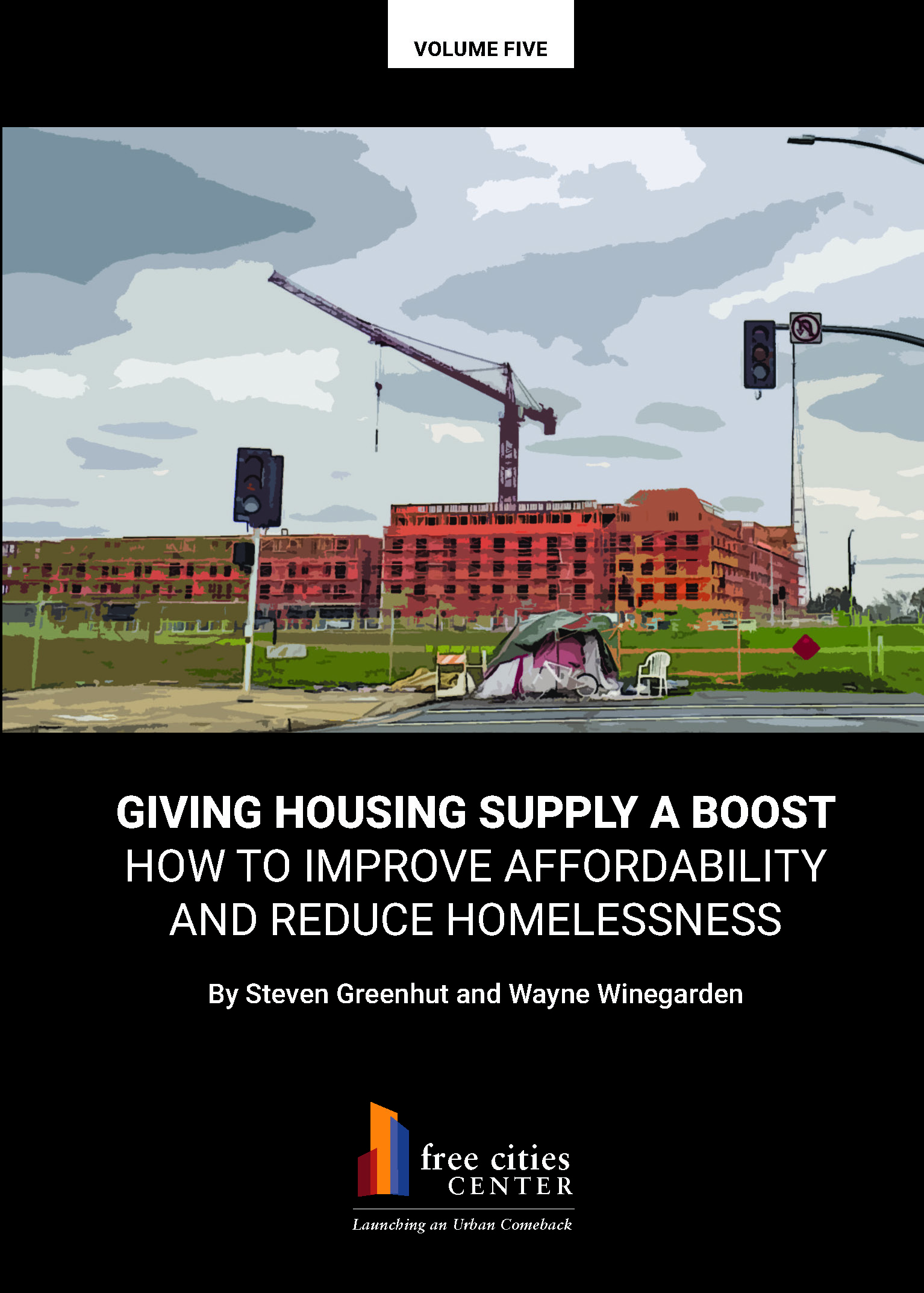SACRAMENTO – Rolling back policies that have created unaffordable costs of living and made homebuilding prohibitively expensive can alleviate the state’s housing and homeless problems, finds a new book released today by the Free Cities Center at the nonpartisan, free-market think tank, the Pacific Research Institute.
Click here to download “Giving Housing Supply a Boost”
“Homelessness is a social problem that’s compounded by exorbitant housing prices,” said the book’s authors, Dr. Wayne Winegarden and Steven Greenhut. “Regions with lower-cost housing have much lower levels of homelessness because a lack of low-cost housing leaves those people on the economic margins with nowhere to go.”
Housing
The book documents political and culture changes starting in the early 1970s that dramatically changed housing policy and led to the current crisis, starting with the California Environmental Quality Act, or CEQA. The law’s maze of costly reports, multiple approvals, and potential for out-of-control lawsuits has become a major obstacle to homebuilding. It also shows how redevelopment agency abuse, exclusionary zoning policies, the rise of development-impact fees, rent control, local growth-control measures, so-called smart growth policies, and climate change policies play a role in impeding new housing.
Homelessness
The authors note that California’s growing unaffordability is a policy choice, albeit unintentional. Citing the latest regional price parities data, which measure the differences in prices across states and regions, Californians face the second most-expensive cost of living behind Hawaii. The state’s large population centers face even higher costs of living.
Winegarden and Greenhut show how Project Homekey – state government’s official response to the homelessness crisis, focusing on permanent shelter through new construction and hotel/motel conversions – is ineffective at treating homeless suffering with mental-health issues and addiction, and is excessively costly where it can help the homeless.
Solutions
Rather than throwing billions more toward the failed Housing First programs, California should efficiently target the factors perpetuating homelessness by:
- Partnering with effective nonprofit organizations, a practice first recognized during the Obama administration to enhance innovative thinking.
- Ending the policy-created affordability crisis by revising overly restrictive zoning laws to incentivize construction and repealing green mandates that drive up energy costs.
- De-emphasizing building permanent housing through overly costly Housing First programs in favor of supporting organizations like DignityMoves that have succeeded through building temporary supportive housing. Reducing the costs of building supportive housing frees up resources for necessary support services.
“We can start to address what San Francisco Mayor London Breed calls ‘the twin troubles of housing affordability and homelessness’ by rolling back policies that make it inordinately difficult and expensive to build new housing,” Winegarden and Greenhut conclude.
PRI’s Free Cities Center cultivates innovative ideas to improve urban life based around freedom and property rights – not government. It regularly releases incisive reporting and analysis on crime, housing, education, homelessness, and social mobility. Follow PRI on Facebook, Twitter, and LinkedIn.


